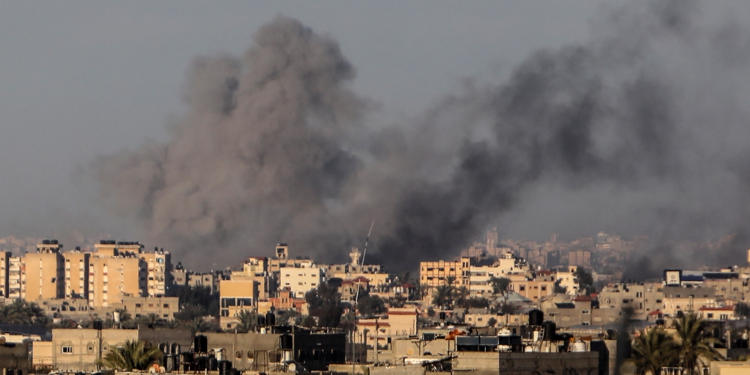
War in the Gaza Strip, Israel and Lebanon has plunged the Middle East into a state of instability and uncertainty. In recent weeks, several countries, from the UK to Turkey, have evacuated their expat citizens from these affected areas. How is this volatile situation influencing the plans of expats across the region?
Governments are evacuating their expat citizens in Lebanon
The ongoing turmoil began in October 2023, when the terrorist organization Hamas carried out a series of coordinated attacks in Israel, and the Israeli state responded by bombing Gaza. A year later, this conflict is ongoing. Lebanon has recently become involved in it after the Israeli military entered the neighboring country in October 2024. The press has reported that various countries have activated emergency measures to evacuate their citizens from Lebanon, which is currently being bombed by Israel. The capital Beirut, which is where most expats in Lebanon live, is also being bombed.
Last week, the UK government began chartering flights to evacuate its 5,000 citizens residing in Lebanon, many of whom hold dual citizenship. These expats describe having only a few hours to pack their belongings and say goodbye to their loved ones, experiencing immense distress and heartbreak in the process. This is especially difficult for those unable to bring family members who hold only Lebanese citizenship with them. Some had to leave their beloved pets behind.
While the UK has sent planes, Turkey has dispatched two navy ships to evacuate around 2,000 of its citizens living as expats in Lebanon. With 12,000 Turkish nationals still remaining in the country, the Turkish government has indicated that they may also send planes for their evacuation if necessary. Around 70 Chinese expats were also evacuated by boat from Lebanon by the Chinese embassy based in Cyprus, one of the nearest European countries.
Some countries have not yet begun evacuating their expat citizens but are making preparations. The US, for one, has stationed troops in Cyprus in anticipation of a potential future evacuation. Germany has already evacuated non-essential embassy staff and expats with health issues, though it has not yet evacuated all of its citizens.
Some expats, both in the affected countries and nearby ones, have no plans to move
Last year, when war broke out, some Palestinians with dual citizenship were able to evacuate via Egypt. Many Israelis with dual citizenship have also left. Some local magazines report that half a million residents of Israel left the country after the 7 October attack on the Re'im music festival. A study by the Hebrew University found that 80% of Israelis abroad do not plan to return to the Middle East because of the current volatility, and the immigration of new Jewish expats to the country has also halved.
Not everyone is leaving, though. On the forum of Expat.com, an American expat living in Israel shares that he has no intention of leaving, as he was fully aware of the risks when he chose to move there. He mentions that the northern part of the country where he lives is not frequently targeted by attacks, though there have been instances where he's had to seek shelter during air raid alarms. Despite this, he remains committed to staying in Israel. He is not the only one. CBS News reports that many American expats in Israel now feel like the Middle Eastern country is their true home. This is especially true for those who relocated there 20 or even 30 years ago. Some have lived through other periods of political volatility, such as the Gulf War, and believe that the current situation will pass as well.
What about expats living in other Middle Eastern countries that aren't directly experiencing war but could still be impacted by the broader regional instability? On the forum of Expat.com, expats in Bahrain and Qatar say that they are not planning to move. One Pakistani expat notes that expats hailing from developing countries are less likely to flee in the face of regional instability because they are under much more financial pressure to make money to send to their families back home.



















